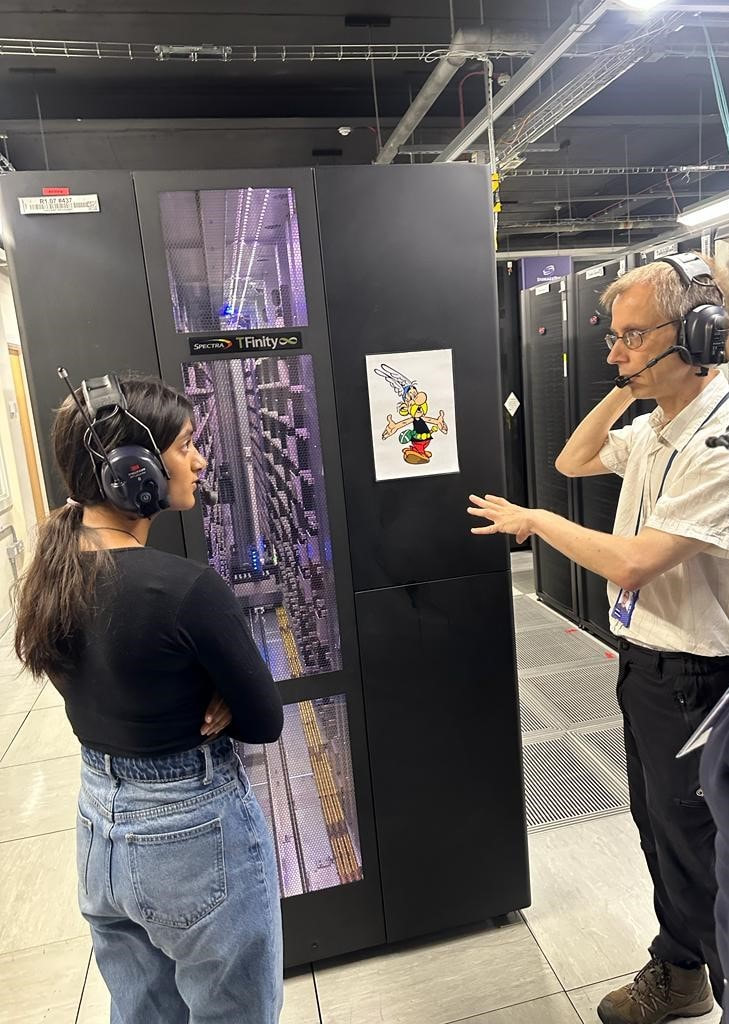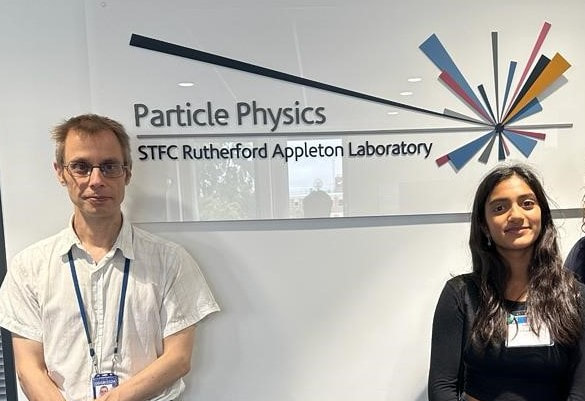 Selvarani Elahi, the UK Deputy Government Chemist Selvarani Elahi, the UK Deputy Government Chemist The STFC Food Network+ (SFN)’s impacts go beyond the researchers directly involved in funded projects. For instance, Selvarani Elahi MBE, the UK Deputy Government Chemist since 2011, became involved with the SFN after giving the keynote talk at the SFN+ Fifth Annual Conference (03-04 July 2023). She describes the benefits this has led to, and how the SFN’s global reach inspires her. Please can you introduce your role? The UK Government Chemist (GC) is a statutory function that has existed since 1875, and is funded by the Department for Science, Innovation and Technology. The two main functions are to resolve scientific disputes and give impartial measurement-related advice to protect consumers and support legitimate food-related businesses to maintain food safety and standards. As Deputy Government Chemist, I deputise for the Government Chemist, advising on food and agricultural analysis and authorising certificates of analysis for referee cases. Before I started this position in 2011, I had various different roles in food and agricultural analysis at LGC Group, which hosts the GC. It was really nice to see that the SFN’s work does not just benefit developed countries, but that the projects engage directly with partners in places such as Africa and India to improve quality of life. Doing things in situ in countries where food system issues are present is very valuable. How did you become involved with the SFN? I think it is one of those cases of where one thing serendipitously leads to another. I first met Izhar Ul-Haq, Business Development Manager at the STFC’s Rutherford Appleton Laboratory (RAL), when he attended the Government Chemist conference in 2016. We kept in touch, and discussed various ideas for collaborative projects. Izhar invited me to give a keynote lecture at the STFC’s Women in Science Conference in 2022. Sonal Choudhary, who manages the SFN, was also a speaker and we connected. She then asked me to give a keynote at the 2023 SFN annual conference. So, it is a testament to the power of networking! What appeals to you about the network? I was already aware about the SFN’s role in helping people to access STFC facilities. But the Annual Conference really opened my eyes to the global dimension of the funded projects. It was fantastic to see that this work not only benefits the UK and developed countries, but that some projects engage directly with partners in Africa and India, having tangible and direct impact on the quality of life of consumers in those countries. The projects showcased at the Annual Conference demonstrated the importance of combining local knowledge, from people who understand the problem, with scientific expertise. I also appreciate how important the SFN is as a source of microfunding. For early-stage projects, trying to obtain funding can be incredibly difficult and bureaucratic – the number of forms you have complete for even a small pot of money puts many people off. So, having an independent body that can give out provide seed-corn funding to test simple concepts is invaluable, especially for developing countries and SMEs. Do you have a favourite example of a SFN project with global reach? Although they were all very interesting, two projects particularly grabbed my attention:
Why do you feel the SFN is important? I lead the Food Authenticity Network , which aims to improve the resilience of the global food supply to food fraud by providing open-access tools that any stakeholder in the world can access. This links strongly to the SFN’s focus on capacity building, so I feel we have a common purpose. I also appreciate how important the SFN is as a source of microfunding. For early-stage projects, trying to obtain funding can be incredibly difficult and bureaucratic – the number of forms you have complete for even a small pot of money puts many people off. So, having an independent body that can provide seed-corn funding to test simple concepts is invaluable, especially for developing countries and SMEs. What other benefits has your involvement with the SFN led to? I was fortunate enough to arrange for my 15-year-old daughter, Sahra, to visit RAL in Harwell, Oxfordshire. During the Annual Conference, I mentioned to Jens Jensen (STFC Data Champion for Science) that my daughter loves maths, and is keen on biology and physics, and he immediately offered to host us for a day. Even my husband came – he has a degree in physics and maths, so his eyes almost popped out of his head when I told him about the visit! We had a really good day at RAL and visited the Data Management Centre, the ISIS neutron and muon source, and the Roslin Franklin Institute. It was my daughter’s first proper visit to a world-class science campus, and it gave her insight into the types of careers available. It was noticeable that even within a very specialised facility, there are a variety of different roles, from data centre analysts to particle accelerator technicians to librarians! It can be hard to find out about the variety of science career options available without visiting sites like RAL. Everyone we met was very passionate about their role and Sahra was hugely impressed; not easy to do, as anyone with a teenager can attest to! Sahra will be applying to the STFC work experience programme for summer 2024. What are your hopes for working with the SFN over the future? After our fantastic tour of RAL (a big thanks to Jens for organising this), I hope to organise a reciprocal visit for SFN colleagues to visit LGC. By appreciating the breadth and scope of work carried out by the SFN, we are better placed to explore future opportunities for collaboration.
0 Comments
Your comment will be posted after it is approved.
Leave a Reply. |
AuthorJune 2024 - Archives
June 2024
Categories |
- Home
- Webinars and Events
- About the SFN+
- News
- Blog
- Expert Working Groups
- Funding
-
Publications
- Bioeconomy positioning paper
- SFN+ 5th Annual Conference
- OMM Policy Report
- ‘Multi-Stakeholder International One Day Workshop on Organic Agri-Food Value Chains for Net Zero’ Report
- SFN 2050 UK Net Zero Food report
- Sustainable Cold Food Chain Booklet
- Food Sensing Technologies for Safe and Nutritious Food
- Sustainable urban and vertical farming
- Projects
- Join/Contact Us



 RSS Feed
RSS Feed


